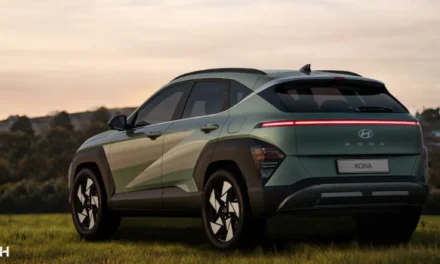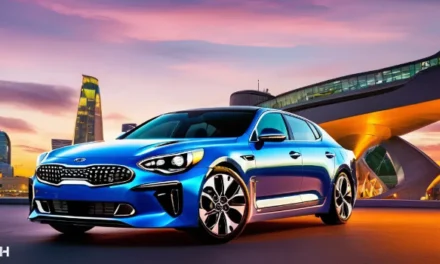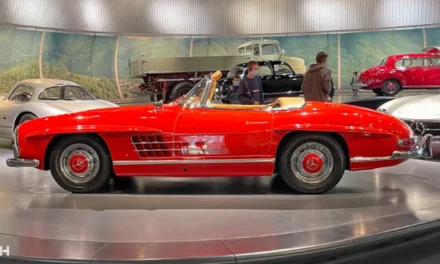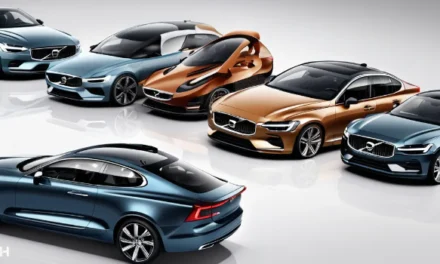In recent years, the question “Does Honda support Israel?” has sparked heated debates and raised concerns among consumers and activists worldwide. This comprehensive article delves into the complex relationship between Honda, one of the world’s leading car manufacturers, and Israel, examining the controversy from various angles and exploring its implications for both the company and its customers.
Honda’s Presence in Israel: An Overview
Honda has been operating in Israel for several decades, selling cars, motorcycles, and power equipment through its local distributor, Mayer Cars and Trucks. The Japanese automaker’s presence in the country has generally been viewed as a standard business operation, similar to its activities in other markets around the world.
However, recent events have thrust Honda into the spotlight, raising questions about its stance on the Israeli-Palestinian conflict and its potential involvement in controversial activities.
The Petzael Racing Event Controversy
In 2018, Honda found itself at the center of a heated debate when it was announced that the company would sponsor a motor racing event in Petzael, an Israeli settlement in the occupied West Bank. This decision immediately drew criticism from human rights organizations and supporters of the Boycott, Divestment, and Sanctions (BDS) movement.
Here’s a breakdown of the controversy:
| Date | Event |
|---|---|
| Early 2018 | Honda Israel announces sponsorship of Moto GP event in Petzael |
| February 2018 | BDS activists and human rights groups call for event cancellation |
| February 22, 2018 | Honda moves the event to Arad, within Israel’s recognized borders |
| Later in 2018 | Honda ultimately cancels the event, citing track safety concerns |
This incident highlighted the challenges multinational corporations face when operating in politically sensitive regions and the potential consequences of being associated with controversial activities.
Honda’s Official Stance on Israel
Despite the Petzael racing event controversy, Honda has not issued any official statements explicitly supporting or opposing Israel’s policies. The company’s approach appears to be one of maintaining business operations while attempting to avoid political entanglements.
However, critics argue that by continuing to do business in Israel and potentially in Israeli settlements, Honda may be indirectly supporting policies that violate international law and human rights.
The BDS Movement and Its Impact on Honda
The Boycott, Divestment, and Sanctions (BDS) movement has been a significant factor in shaping public opinion and corporate behavior regarding Israel. Here’s how it has affected Honda:
- Increased scrutiny: The BDS movement has placed Honda and other companies operating in Israel under increased scrutiny.
- Pressure to divest: Activists have called on Honda to cease operations in Israeli settlements and to reconsider its presence in Israel altogether.
- Reputational risks: The controversy surrounding the Petzael event demonstrated the potential reputational risks for companies associated with Israeli settlements.
Honda’s Business Operations in Israel: A Closer Look
To better understand Honda’s position in Israel, let’s examine its business activities:
- Vehicle sales: Honda sells cars, motorcycles, and power equipment through its local distributor, Mayer Cars and Trucks.
- Market share: While exact figures vary, Honda maintains a significant presence in the Israeli automotive market.
- Dealerships: Honda has numerous dealerships throughout Israel, including some in contested areas.
It’s worth noting that Honda’s operations in Israel are similar to those of other major automotive brands, including Toyota, Hyundai, and Volvo.
The Ethical Dilemma: Balancing Business and Human Rights
The controversy surrounding Honda’s activities in Israel raises important questions about corporate responsibility and ethical business practices:
| Pros | Cons |
|---|---|
| Economic impact: Contributes to local economy | Human rights concerns: May indirectly support controversial policies |
| Job creation: Provides employment opportunities | Reputational risks: Association with settlements may damage brand image |
| Market presence: Maintains competitive position | Ethical considerations: Potential conflict with corporate values |
Conclusion: A Complex Issue with No Easy Answers
The question “Does Honda support Israel?” doesn’t have a simple yes or no answer. While Honda continues to operate in Israel, including in some contested areas, the company has also shown sensitivity to concerns by canceling controversial events.
As consumers become increasingly aware of corporate activities in politically sensitive regions, companies like Honda will need to navigate these complex issues carefully. The ongoing debate surrounding Honda’s presence in Israel serves as a reminder of the challenges global corporations face in balancing business interests with ethical considerations and human rights concerns.
Ultimately, it’s up to individual consumers to weigh the available information and make purchasing decisions that align with their values and beliefs.
FAQs: Does Honda Support Israel?
Honda, as a global motor company, does not publicly endorse political stances. However, like many companies, they may have business interests in various countries, including Israel and Asia.
What is Honda’s involvement in the Israeli market?
Honda operates in Israel through its subsidiaries and affiliates, providing vehicles and services. Their activities are primarily commercial and do not directly relate to political issues.
Are there any known connections between Honda and the Israeli military?
There is no direct evidence to suggest that Honda has any ties to the Israeli military or the IDF. Most automotive companies focus on their core business rather than political affiliations.
How does Honda’s operations impact the Palestinians?
Honda’s operations are predominantly commercial. However, the broader implications of international business in the region can affect various communities, including Palestinians, particularly concerning the ongoing conflict and occupation.
What actions have activists taken against Honda regarding their stance on Israel?
Activists have organized campaigns urging Honda to reconsider its business dealings in Israel due to concerns about the Israeli occupation of Palestinian territories and the humanitarian situation in Gaza.
Is Honda involved in any humanitarian efforts in Palestine?
There are no specific reports of Honda sponsoring humanitarian efforts in Palestine. However, some companies engage in corporate social responsibility initiatives that might indirectly benefit communities affected by conflict.
What is the response from Honda regarding allegations of supporting illegal activities in Palestine?
Honda has not publicly responded to specific allegations regarding illegal activities. The company generally maintains a neutral stance on political matters and focuses on its business operations.
Are there any initiatives by Honda to promote peace in the region?
While Honda does not have specific initiatives aimed at promoting peace in the Israeli-Palestinian conflict, many corporations emphasize ethical business practices and corporate social responsibility in their operations globally.
How can consumers express their opinions on Honda’s business practices related to Israel?
Consumers can express their opinions through social media, contacting Honda directly, or participating in advocacy campaigns organized by various activist groups focused on human rights and social justice.





